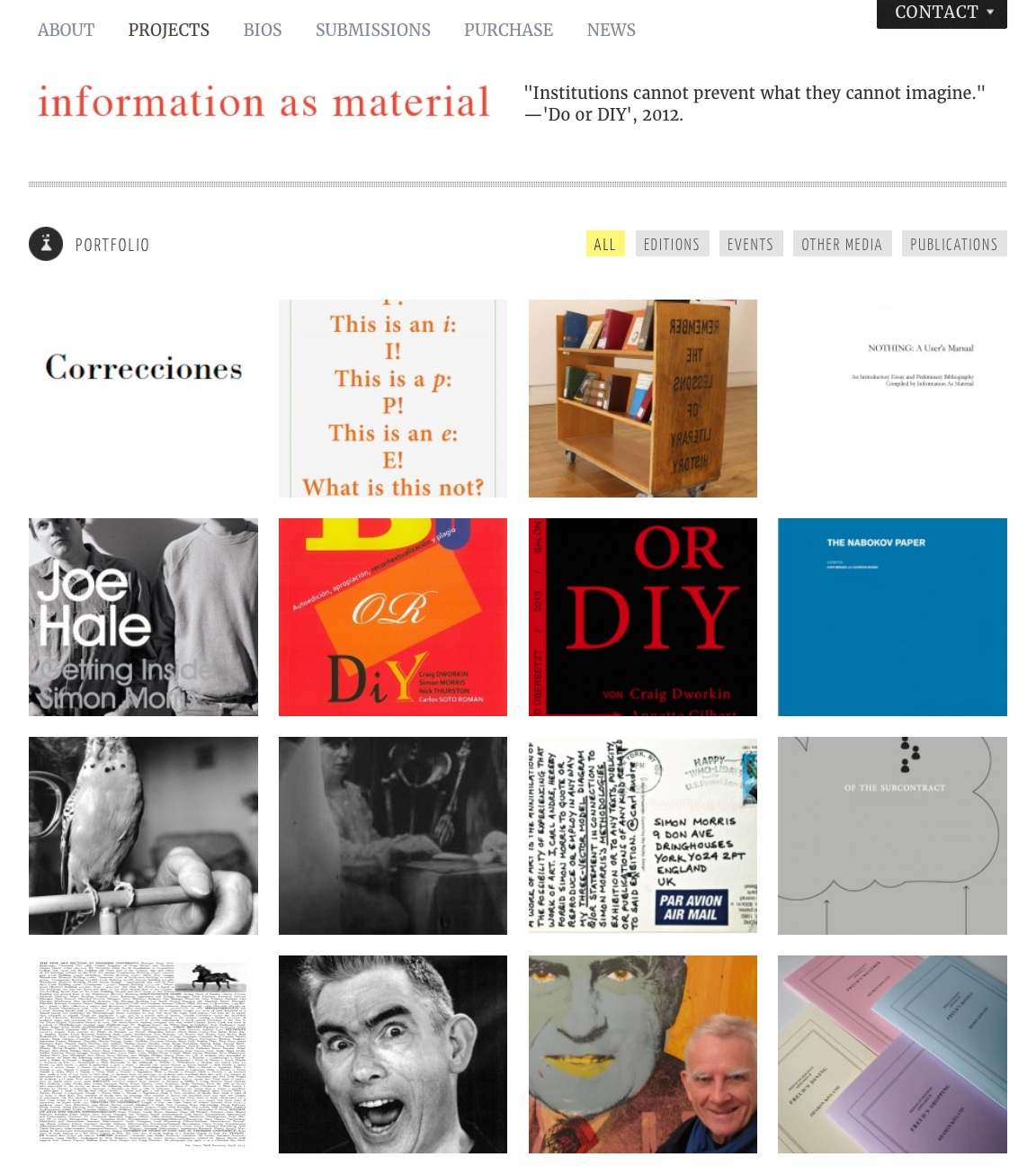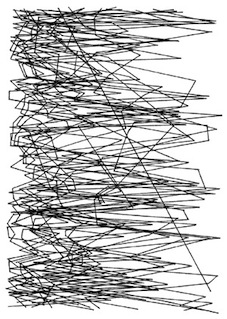Event
Anne Witchard is part of a panel discussing the 1962 film The London Nobody Knows at the Genesis Cinema organised by the Luxury Book Club.
The London Nobody Knows is an important film every Londoner should watch once. It’s a privilege to re-experience the city through the prism of Geoffrey Fletcher’s eccentric gaze. Fletcher loves the romance of ruins, relishing are the places where a fragile connection with the past remains intact. He’s an explorer and an adventurer, a Londonologist. The film sees James Mason (smart casual and dressed for adversity in a flat cap) taking a stroll through shabby 1960s London. Edwardian tearooms, unusual gas lamps and crumbling terraces, rococo funeral parlours and art nouveau pubs, the ‘sleazy snack bars’ and the cast-iron balconies, forlorn music halls, old Jewish tailors and outmoded East End boutiques; redundant curiosities on the brink of oblivion.
Further details here.
Wednesday 29 June 2016, 7pm, Carroll/Fletcher, 56-57 Eastcastle Street, London, W1W 8EQ
Tickets £5, available here
Nick Thurston, an artist and critic, will discuss the work of Information as Material, an independent publishing project, which he co-edits with Simon Morris and Craig Dworkin. Thurston will address questions of materiality of language and independent and experimental publishing, and explore ideas about appropriated and subverted technologies of communication.
The talk will be followed by a conversation between Nick and critic and academic, Stephen Voyce.
This is the fifth event in the Experimental Writing @ Carroll/Fletcher series. Organised by the Institute of Modern and Contemporary Culture at University of Westminster and Carroll/Fletcher, the series showcases contemporary developments in experimental writing and their relationship to the visual arts.
Nick Thurston has exhibited and performed internationally at Denver Museum of Contemporary Art, Toulouse Museum of Contemporary Art, The Laurence Sterne Museum, Whitechapel Gallery, and Bury City Art Gallery, amongst others. He is the author of numerous publications ranging from poetry to prose essays. Since 2006, he has been a co-editor of Information as Material (iam). iam operates as a collective of writer-editors and as an independent imprint that publishes work by artists who use extant material — selecting it and reframing it to generate new meanings — and who, in doing so, disrupt the existing order of things. The imprint’s activities involve writing, publishing, exhibiting, curating, web-based projects, lectures and workshops. iam’s publications and editions are held in private and public collections around the world including Tate (UK), National Library of France (FR), and MoMA (USA). Nick’s own work is collected by the Electronic Poetry Center (University of Buffalo and University of Pennsylvania), which archived his work in 2015. The collection includes his poems, short writings, interviews and book extracts (2006-2014). Nick is a Programme Director of interdisciplinary undergraduate Fine Arts programme at the University of Leeds and a Visiting Fellow in Contemporary Writing at the University of Pennsylvania.
Stephen Voyce is Professor at the English Department at the University of Iowa, where he also holds appointments in the Digital Studio for the Public Arts & Humanities and the Center for the Book. He is the author of Poetic Community: Avant-Garde Activism and Cold War Culture (University of Toronto Press, 2013), the editor of a book of variations: love – zygal – art facts (Coach House Books, 2013), and the Director of the Fluxus Digital Collection. His work also appears in journals such as Jacket2 Magazine, Modernism/modernity, Criticism: A Quarterly Journal for Literature and the Arts, Postmodern Culture, and Open Letter. Voyce’s primary teaching and research interests include twentieth-century poetry, media studies, Marxist criticism and theory, and critical digital studies. Before joining the University of Iowa, he worked in the music industry and as a SSHRC-postdoctoral fellow at the Modern Literature and Culture Research Center in Toronto, Canada.
For more information, please contact either Kaja Marczewska: k.marczewska@westminster.ac.uk
or Asya Bachelis: asya@carrollfletcher.com
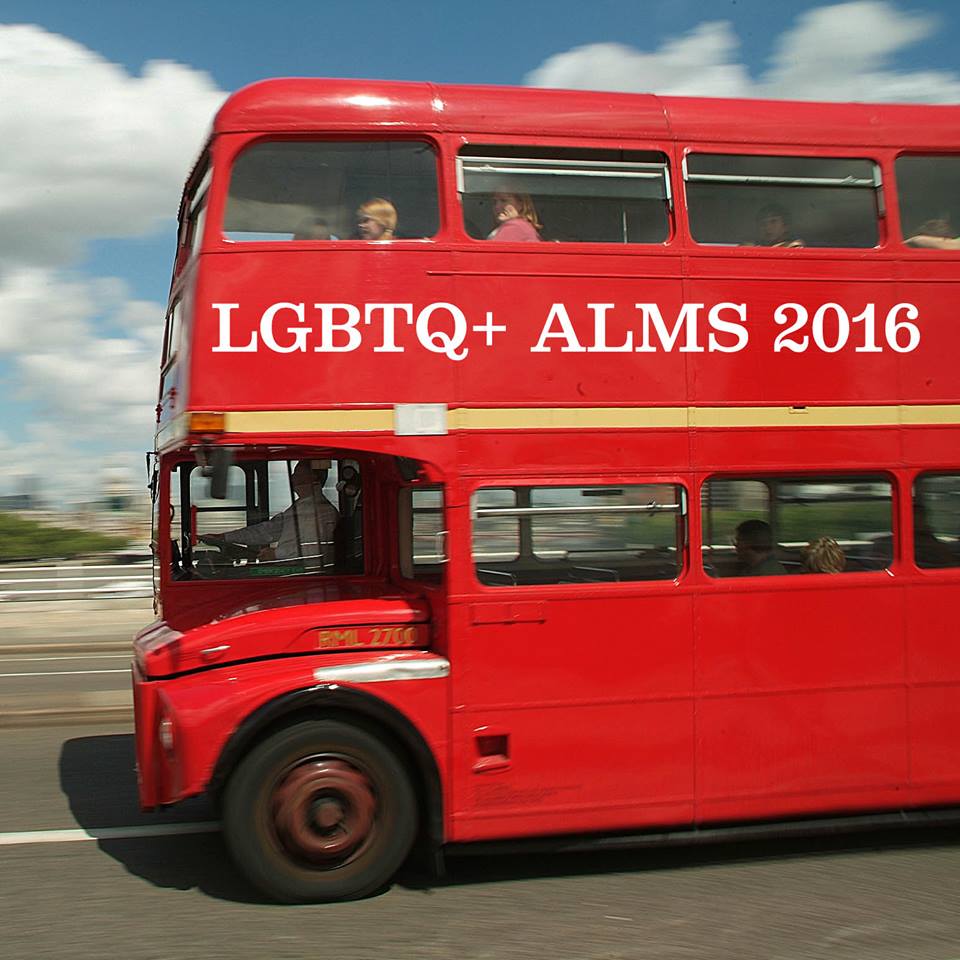
Wednesday 22nd – Friday 24th 2016
Bishopsgate Institute, University of Westminster, London Metropolitan Archives
“Without Borders”: LGBTQ+ Archives, Libraries, Museums and Special Collections
The Queer London Research Forum at the University of Westminster is co-hosting the three-day 2016 LGBTQ+ Archives, Libraries, Museums and Special Collections conference in collaboration with the Bishopsgate Institute and the City of London through the London Metropolitan Archives.
ALMS is an international conference focussed on the work by public, private, academic, and grassroots organisations which are collecting, capture and preserving archives of LGBTQ+ experiences. The conference began in Minnesota in 2006 when the Tretter Collection and Quatrefoil Library co-hosted the first LGBT ALMS Conference. The last conference took place in Amsterdam in 2012 and saw archivists, activists, librarians, museums professionals and academics from around the world coming together to share success stories and discuss challenges involved in recording LGBTQ+ lives. The 2016 conference is titled ‘Without Borders’, and the aim is to generate a dialogue within the co-dependent fields of LGBTQ+ historical research and collecting, and share experiences, ideas and best practice through a programme of presentations and short talks that explore margins, borders, barriers and intersections, past and present.
An evening reception to welcome delegates to London and the conference will be held in the Boardroom of the University of Westminster’s building at 309 Regent Street from 6-9pm on Tuesday 21st June. To help with drinks catering, please register via this Eventbrite page: https://goo.gl/N8kkXe
The three days of the conference will then take place at the Bishopsgate Institute (June 22nd), University of Westminster, 309 Regent St (June 23rd), and the London Metropolitan Archives (June 24th).
Full details and conference programme at: http://lgbtqalms.co.uk/
Full three day ticket (includes Tuesday evening reception)
£220 Institution
£100 Self-funded / unaffiliated
£40 students / unwaged / concessions (proof required)
You can book online here.
Friday 17th June 2016
St Pancras Room, King’s Place, 09:30-17:00
Sexual Violence Against Women: Voice and Representation
This one-day symposium organised by the IMCC’s Dr Georgina Colby with Hannah Camplin aims to bring keynote academics and practitioners in the fields of law, politics, and charities into dialogue with writers, artists, and filmmakers who take up the issues surrounding sexual violence against women in their works.
The symposium will open with a keynote address by Professor Jacqueline Rose (FBA, Birkbeck Institute for the Humanities, University of London), entitled ‘Feminism and the Abomination of Violence.’ Professor Rose’s keynote address will be followed by a lunchtime keynote paper by Keir Starmer MP, Holborn and St Pancras. There will be two afternoon panels on ‘Sexual Violence, Belief, and Credibility’, and ‘Voice and Representation: Empowering Voice and Enacting Change Through the Arts and Humanities’.
Tickets are priced at £6.00, excluding booking fee (£1.52). All proceeds from tickets sales will go to the Women’s Project at Asylum Aid. Tickets include coffee and refreshments throughout the day.
Tickets are available through Eventbrite.
Contact Georgina Colby for further information: g.colby@westminster.ac.uk.
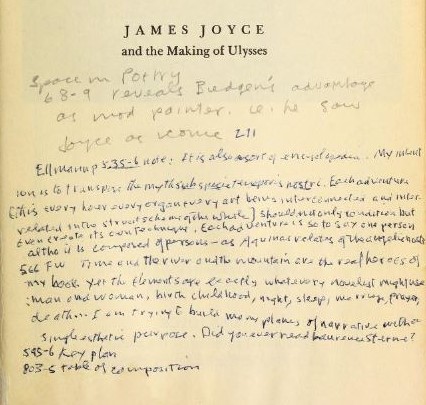
Monday 20th June, 10.30 am – 4.00 pm
The Boardroom, University of Westminster, 309 Regent Street, London W1
McLuhan’s Media Practice: Literature and Communication
Marshall McLuhan is a central and provocative figure in early media discourse – some of his pronouncements shaped the subject while others were divisive or obscure. However, his wide-ranging literary research, teaching and ground-breaking contributions to publishing still require detailed attention – for example, recent accessibility to his own richly annotated library presents a remarkable new research resource, while his collaborations with book designers remain hugely influential if inadequately understood. This symposium addresses McLuhan’s media practice from the dual perspectives of communication and literature, and introduces a new digital resource of archival McLuhan materials gathered from seven independent institutions and scholars during the last twelve months.
Discussing McLuhan’s contributions to our understandings of media practices, the history and futures of the book, and literary modernism, not least through his own annotations on texts by Joyce and others, the symposium welcomes participants from the Marshall McLuhan Estate, Canadian Embassy, Berlin and the Thomas Fisher Rare Book Library, as well as academics, curators and publishers with a special interest in McLuhan.
Speakers include: Andrea Boegner (McLuhan Salon, Canadian Embassy, Berlin), Peter Cornwell (Data Futures, IMCC), David Cunningham (IMCC), Duncan Forbes (Fotomuseum Winterthur, Switzerland), Doris Gassert (Fotomuseum Winterthur, Switzerland), Jon Goodbun (Architecture, Westminter), Tom Lamberty (Merve Publishing, Berlin), Graham Larkin (art historian, Ottawa), Andrew McLuhan (McLuhan Estate), John Shoesmith (Director, Thomas Fisher Rare Book Library, Toronto), Leigh Wilson (IMCC), and Simon Worthington (Mute, Berlin)
Register for a place here.

Veronica Posada Alvarez, one of the students on our MA Art and Visual Culture, is taking part in an event on The Case for London’s Latin Quarter. Organised by Latin Elephant, and setting out a strategy for the future of Elephant and Castle’s Latin American community, the event includes a discussion, photo exhibition and screening of a short documentary.
It takes place at 6.00pm on Monday 6 June at Draper Hall, 1 Howell Walk, London SE1 6LT. Further details here.
Image courtesy of Derek Beaulieu
Thursday 30 June 2016
Parasol Unit, 14 Wharf Road, London N1 7RW
In the Editorial for the first issue of Art-Language (1969) Terry Atkinson raised questions about a possibility of combining creative and critical practice: ‘can this editorial,’ Atkinson wrote, ‘in itself an attempt to evidence some attributes as to what “conceptual art” is, come up for the count as a work of conceptual art?’ Forms of Criticism takes Atkinson’s idea as its starting point to engage with issues of criticism and form and interrogate limits between creative and critical practice.
In poetry, fine art, film making, performance – in the creative sector – we are familiar with and applaud – or tolerate, in the very least – experiments which blur or transgress boundaries of genre, form, or creativity. Similar possibilities of formal experimentation remain significantly underexplored with respect to critical practice, although a growing interest in probing the limits of criticism can currently be observed. Forms of Criticism proposes to think about critical practice as a creative experiment with form in its own right and invites a re-examination of the relationship between research and forms adopted for presenting, communicating, and disseminating it. By considering diverse sites of critical and creative production the project focuses on experimenting with modalities of criticism and ways of addressing formal critical-creative hybridity.
The event brings together artist, curators, writers, critics and scholars addressing questions of hybrid creative-critical forms in theory and practice though talks, performances, screenings, readings and installations. Speakers include: John Beck (IMCC), Kate Briggs (American University in Paris), Eric Cazdyn (University of Toronto), Ducks!, Gary Hall (Coventry University & Open Humanities Press), Peter Jaeger (poet and critic, Roehampton), Kristen Kreider (poet and artist, Royal Holloway), Richard Misek (filmmaker), Simon Morris (Leeds Beckett University), Jo Collinson Scott (musician and musicologist), Marquard Smith (Journal of Visual Culture and Piet Zwart Institute, Rotterdam), and Nick Thurston (artist, University of Pennsylvania and Leeds).
The event is free and open to all but places are limited and booking is essential. For more information about the event and to reserve tickets please go to: http://www.formsofcriticism.net/
For more information, please contact Kaja Marczewska: k.marczewska@westminster.ac.uk
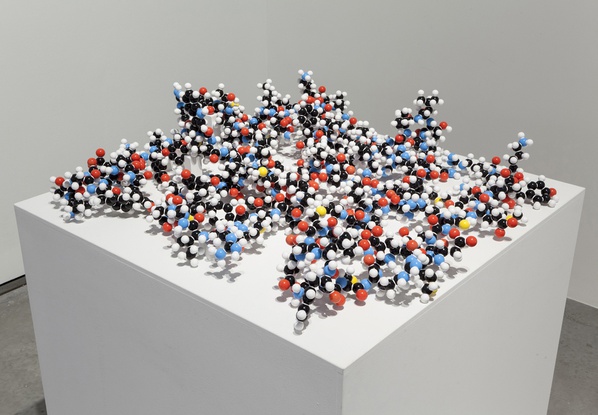
Monday 23 May 2016, 7pm, Carroll / Fletcher, 56-57 Eastcastle Street, London, W1W 8EQ
Tickets £5 available here
Christian Bök, an experimental poet and conceptual artist will discuss the intellectual foundation for his innovative experiment, The Xenotext – a work that required Bök to engineer the genome of an unkillable bacterium so that the DNA of such an organism might become not only a durable archive that stores a poem for eternity, but also an operant machine that writes a poem in response. The presentation will be accompanied by literary readings of poetry, produced in response to his research.
The talk will be followed by a conversation between Christian and the IMCC’s John Beck.
This is the fourth event in the Experimental Writing @ Carroll / Fletcher series. Organised by the Institute of Modern and Contemporary Culture at University of Westminster and Carroll / Fletcher, the series showcases contemporary developments in experimental writing and their relationship to the visual arts.
Christian Bök is a Canadian experimental poet and artist. He is the author of Crystallography (Coach House Press, 1994), a pataphysical encyclopedia nominated for the Gerald Lampert Memorial Award, and of Eunoia (Coach House Books, 2001), a work of experimental literature, which won the Griffin Prize for Poetic Excellence. Bök has created artificial languages for two television shows: Gene Roddenberry’s Earth: Final Conflict and Peter Benchley’s Amazon. Bök is also known for his performances of sound poetry (particularly the Ursonate by Kurt Schwitters). His conceptual artworks, which include books built out of Rubik’s cubes and Lego bricks, have appeared at the Marianne Boesky Gallery in New York City as part of the exhibit Poetry Plastique. Bök is currently a Professor of English at the University of Calgary.
For more information, please contact either:
Kaja Marczewska: k.marczewska@westminster.ac.uk
or Asya Bachelis: asya@carrollfletcher.com
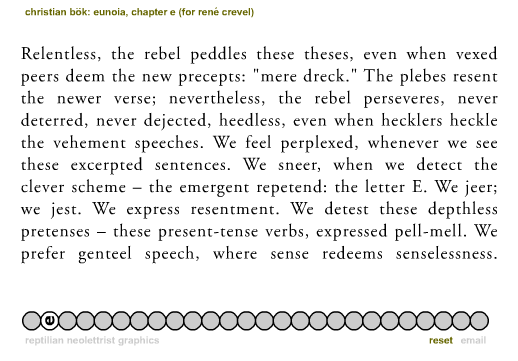
Monday 23 May, 11:00 am-1.30 pm, 309 Regent Street, London W1B 2UW.
We are delighted to announce a Masterclass with Canadian writer Christian Bök. The Masterclass is part of our Experimental Writing series and coincides with an event @Carroll/Fletcher later this month (further details will be available in due course).
This masterclass will introduce some of the techniques of Conceptualism, a school of writing that often uses technical resources on the Internet to explore the aesthetics of “the uncreative”: for example, the readymade writing of the unoriginal text; the mannerist writing of the constrained text; the illegible writing of the unreadable text; and the aleatoric writing of the authorless text. The class explores these four ways of writing so that participants might torque them to their own, otherwise “creative,” purposes.
Participation in the Masterclass is free but places are limited and registration is essential. While priority will be given to postgraduate students (both taught and research) and early career researchers, all applications are welcome!
For further information, please contact Kaja at k.marczewska@westminster.ac.uk
Registration: http://goo.gl/forms/9an5RDI9Y2
Wednesday, 11 May 2016, 6:00 pm
Regent St Cinema, 309 Regent St, London W1B 2UW
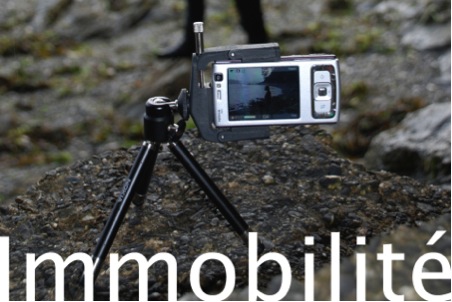
We are delighted to announce the UK premiere of Mark Amerika’s work of early mobile phone video art, Immobilité.
Released in 2009, Mark Amerika’s Immobilité appropriates the stylistic tendencies of the “feature-length foreign film.” The artwork introduces the creative use of subtitles that double as a literary text depicting a future world where the dream of living in utopia can only be sustained by a nomadic tribe of artists and intellectuals living on the edge of apocalypse.
According to Amerika, “Immobilité mashes up the language of auteur-driven ‘foreign films’ with a more amateur video vernacular we now associate with social media platforms like YouTube and Vine.” By experimenting with a low-tech glitch aesthetic associated with pre-HD mobile phone video recording technology as well as more sophisticated forms of motion picture narrative found in European art-house movies, Amerika makes an attempt at interrogating the question: “What is the future of cinema?”
Shot entirely on a Nokia N95 mobile phone in 2007 (before the release of the iPhone), Immobilité was filmed on location in the Cornwall region of England and received support from the University of Falmouth iRES research group, Tate Media, and the University of Colorado Innovative Seed Grant. Solo exhibitions of Immobilité have taken place at the Denver Art Museum, the National Museum of Contemporary Art in Athens, and the Chelsea Art Museum.
For more information on Immobilité, visit immobilite.com
For further information about the event, please contact Kaja Marczewska: k.marczewska@westminster.ac.uk
The film will be introduced by Mark Amerika, in conversation with Chris Meigh-Andrews.
The event is free and open to all. Booking is essential and tickets are available here.
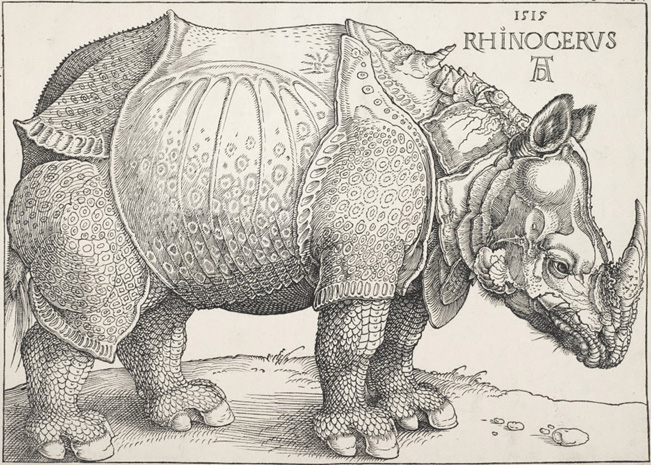
Talita Jenman, who is currently studying on the Institute’s MA in Art and Visual Culture, is giving a lecture on the Artistic Connections Between Animals and Humans at the National Gallery in London on May 9th.
Monday 9th May 2016, 1.00 pm
Salisbury Wing Theatre, National Gallery
Finding the Animal
How have depictions of animals in Western art changed through time, and what might this tell us about the evolving relationship between the human and natural world? This lecture explores the changing concept of both wildness and society and how this has impacted on the ways in which we depict animals.
Talita Jenman is an artist and art historian who previously ran the Arts and Culture Programme at ZSL London Zoo.
Further details here.
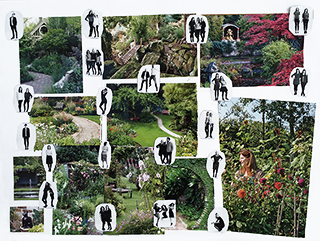
April 29th – July 4th 2016, 9am – 6pm, Monday to Friday
The Conference Centre, St Pancras Hospital, 4 St Pancras Way, London NW1 0PE
“Piecing It Together”
‘Piecing it Together’ is an exhibition of collages and photo-text books produced as part of a participatory art project based at two North London NHS Foundation Trust Acute Day Units for people who have experienced a recent deterioration in their mental health, and facilitated by our own Alexa Wright.
Between January and September 2015 artist, Alexa led weekly workshops for service users at the two day centres. These Art Project workshops offered an opportunity for participants to use collage as a direct, visual means to communicate what they had been through. Some people also continued to work with Alexa on a 1-1 basis to create small photo-text books about their experiences. As well as providing individuals recovering from acute mental difficulties with a means of coming to terms with what happened to them, the project aims to challenge stigma around mental health more generally. Interactions with the people Alexa met during the workshops will form part of her ongoing research towards a new suite of video and sound works reflecting on some of the often surreal, but always very human themes that emerged during the residency.
The exhibition will be accompanied by a Symposium to be held on Thursday 16th June.
Some further details about the project at: http://piecingittogether.org/
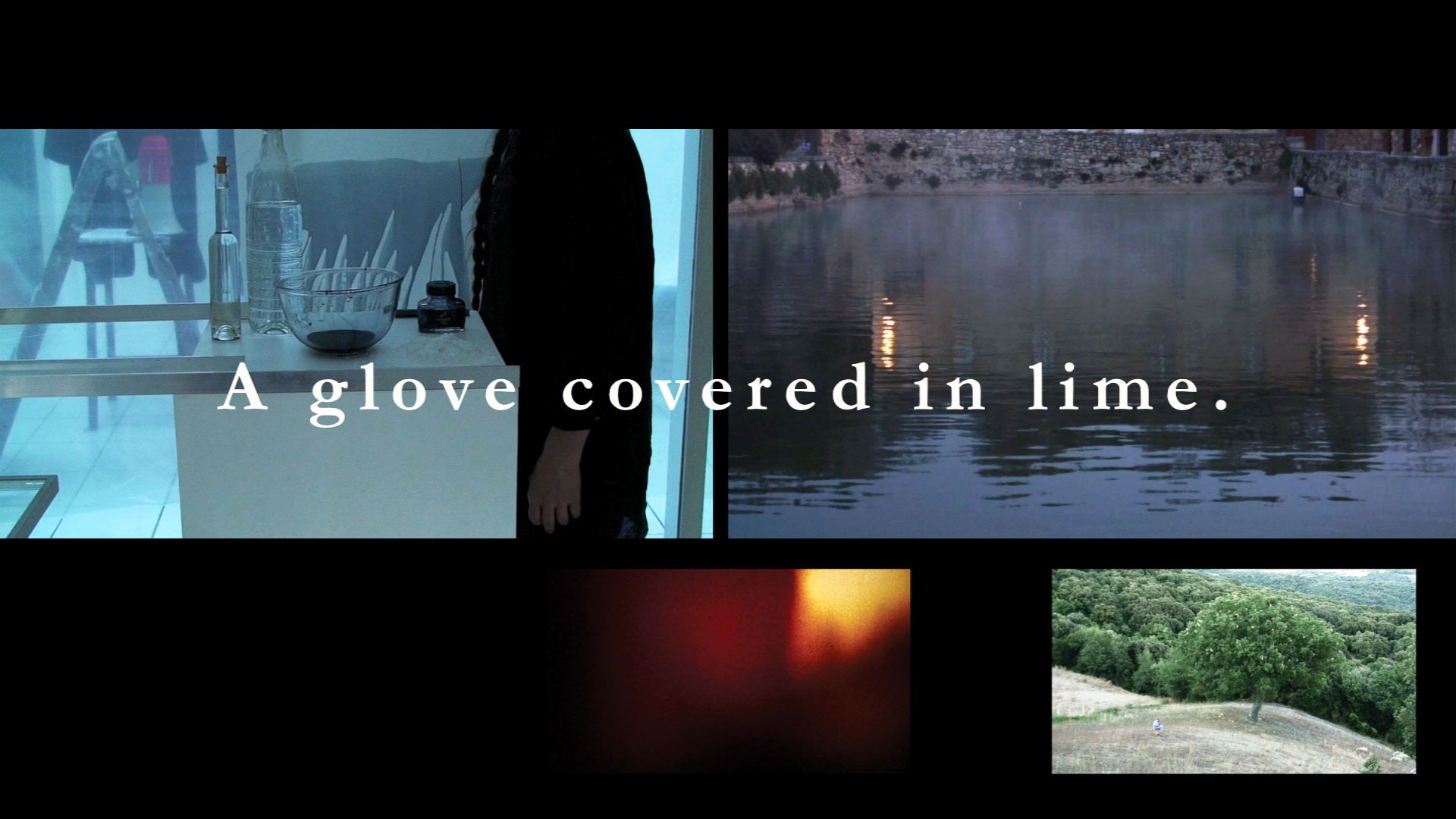
Experimental Writing @ Carroll / Fletcher: Kreider + O’Leary with Maria Fusco
Friday 18th March, 7.00pm
Carroll / Fletcher Gallery, 56-58 Eastcastle Street, London W1W 8EQ
Tickets: £5 from Carroll / Fletcher.
This will be a ticketed event. Booking information will be available soon via eventbrite.
This is the second event in the Experimental Writing @ Carroll/Fletcher series. Organised by the Institute for Modern and Contemporary Culture at University of Westminster and Carroll/Fletcher, the series showcases contemporary developments in experimental writing and their relationship to the visual arts.
Kreider + O’Leary will read from a selection of works including Falling (Copy Press, 2015) and the forthcoming Field Poetics (EROS Press, 2017). In addition, they will screen a selection of video work that is made in parallel to the text works. The reading/screening will be followed by a conversation between Kreider + O’Leary and writer and academic Maria Fusco.
Kreider + O’Leary are a poet and an architect who collaborate to make performance, installation and time-based media work in relation to sites of architectural and cultural interest. Since 2003, Kreider + O’Leary have made work in places such as prisons, military sites, film locations, landscape gardens, desert environments and more traditional gallery venues across the UK, USA, Europe, Australia, South America and Japan. Their work Light Vessel Automatic was exhibited at Performing Architecture at Tate Britain in 2013, Edge City was exhibited at the Lisbon Architecture Triennale in Lisbon in 2013 and their book Falling has recently been published by Copy Press (2015).
Maria Fusco is a Belfast-born writer based in Glasgow. Her work is published internationally and is translated into ten languages. She has just completed Master Rock, a new commission from Artangel & BBC Radio 4, which is a performance and radio broadcasts live inside a mountain on the west coast of Scotland. Maria writes fiction, critical and theoretical texts and edits publications. With A Bao A Qu Reading When Attitudes Become Form (Los Angeles/Vancouver: New Documents, 2013), The Mechanical Copula (Berlin/New York: Sternberg Press, 2011), is published in French as Copulation Mécanique (Paris: éditions ère, 2012). She is founder/editorial director of The Happy Hypocrite a semi-annual journal for and about experimental art writing, and a Reader at Edinburgh College of Art, University of Edinburgh.
For more information, please contact either Georgina Colby at g.colby@westminster.ac.uk or Asya Bachelis at asya@carrollfletcher.com
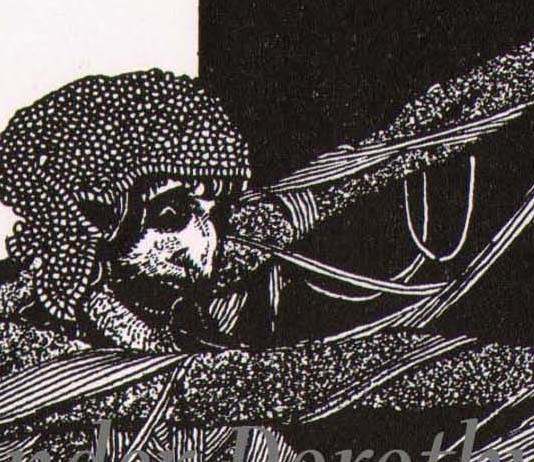
Emma McEvoy is teaching a special five-week Introduction to the Gothic evening course at the British Library, starting on Tuesday 5th April this year. Book a ticket now here!
The five-week course will introduce you to Gothic, from Horace Walpole’s seminal novel The Castle of Otranto (1764) to Daphne du Maurier’s Rebecca(1938). En route we’ll take in a novel by the ‘Shakespeare of romance writers’ Ann Radcliffe, Bram Stoker’s Dracula (1897), and short stories by Edgar Allan Poe and Nathaniel Hawthorne, amongst others. Gothic has never been solely a literary phenomenon and although our primary focus is on literature, we’ll also make reference to film, television series, architecture and painting.
You’ll also have the opportunity to view items from our collections such as Bram Stoker’s original playscript of Dracula, the beautifully illustrated edition of Walpole’s Description of Strawberry Hill, Victorian periodicals, first (and later) editions of the Gothic texts we’ll be discussing, and rare examples of the cheaply produced chapbooks of the 1790s.
The course is led by Dr Emma McEvoy, University of Westminster, with contributions from British Library curator Greg Buzwell.
See more here.
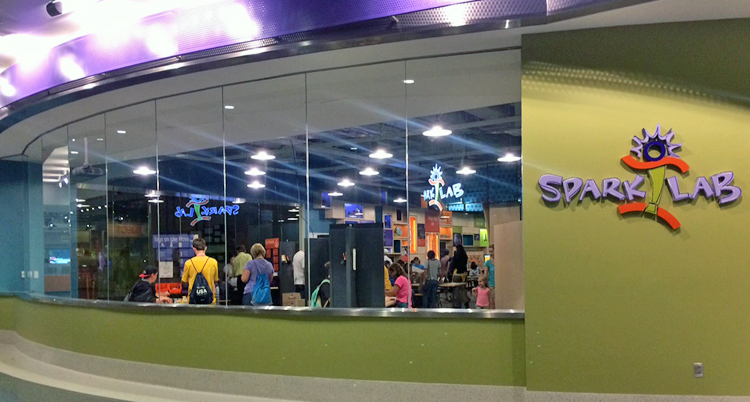
Wednesday 6th April 2016, 6.30pm
Fyvie Hall, University of Westminster, 309 Regent Street, London W1B 2HW
‘Crossing Boundaries: Promoting Innovation and Creativity’
Dr Arthur Daemmrich, Director of the Lemelson Centre, Smithsonian Institution
The Lemelson Center has led the study of invention and innovation at the Smithsonian in Washington DC since 1995. The Center’s activities advance scholarship on the history of invention, share stories about inventors and their work, and nurture creativity in young people. The Center is supported by The Lemelson Foundation and located in the National Museum of American History. The new Lemelson Hall of Invention and Innovation, opened on 1 July 2015, is a signature part of the Museum’s 45,000-square-foot Innovation Wing. The Hall is home to two exhibitions, “Places of Invention” and “Inventive Minds”, and includes the hands-on invention center Draper Spark!Lab.
Dr Daemmrich will give a special lecture on the work of the Lemelson, followed by a panel discussion with Tricia Edwards, Head of Education, Lemelson Center; Sharon Ament, Director, Museum of London; Stian Westlake, Executive Director, Policy and Research, NESTA. Chaired by Professor Alexandra Warwick, Head of Dept of English, Linguistics & Cultural Studies, University of Westminster.
RSVP and further information from Alan Morrison, Coordinator, Smithsonian-Westminster Colloquium, University of Westminster, morrisa1@westminster.ac.uk

Wednesday 2 March, 5.00 pm
Room 105, University of Westminster, 32-38 Wells Street, London W1T 3UW
‘The Iterative Turn’
Kaja Marczewska (Westminster), with a response by Steve Smith
A Post-Doctoral Fellow in the Institute, Kaja Marczewska will be giving a paper based on her current research with a response from Steve Smith. Drawing on debates about plagiarism and the state of copyright, Kaja’s paper investigates the implications of the increasing propensity to copy as a creative practice in contemporary culture and understands it as a cultural condition that triggers novel attitudes to creativity. By interrogating the restrictions of the dominant categories of originality and authorship, in legal and creative terms, the paper proposes the notion of iteration as a possible alternative for thinking about some representative creative practices characteristic of the contemporary moment.
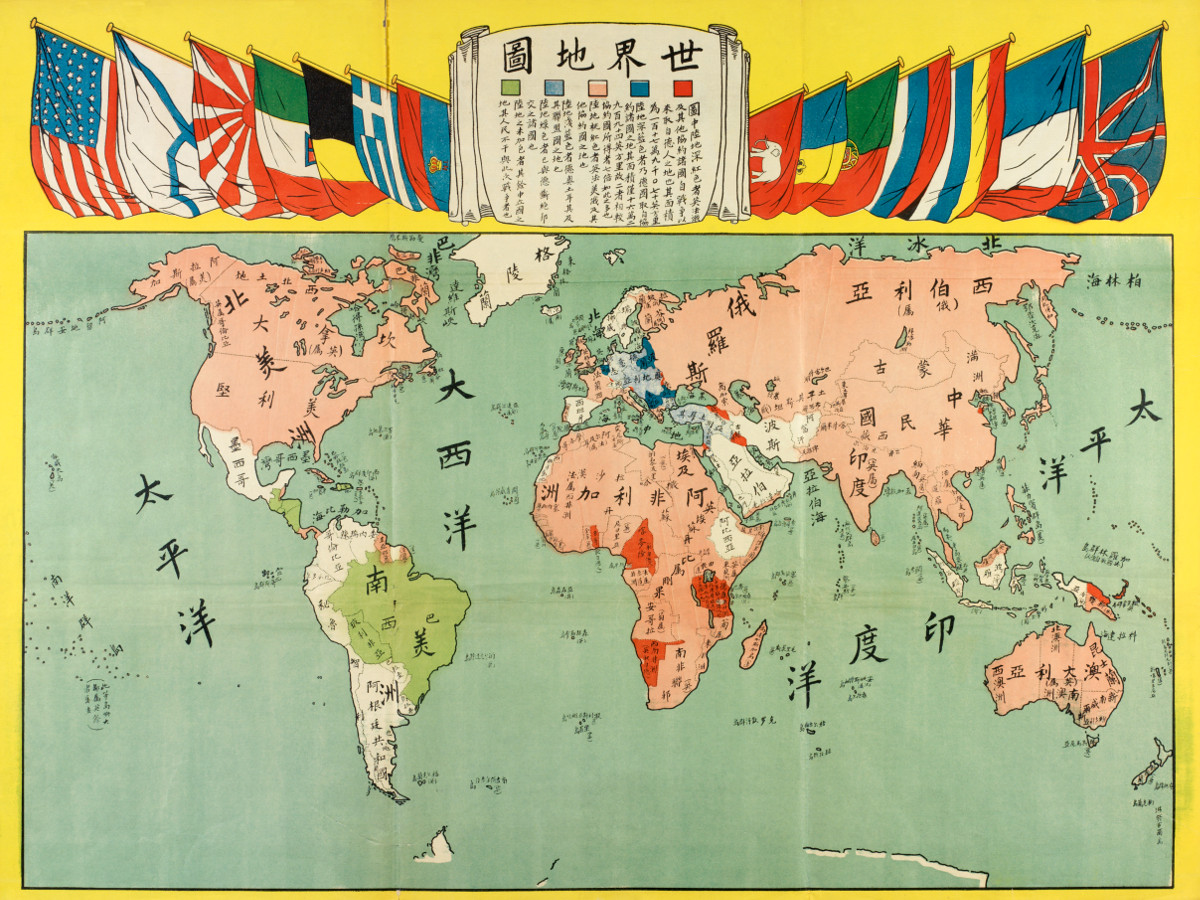
China and the Great War: A Symposium
Wednesday 4th May 2016, 9.00 – 17.00
Imperial War Museum, Lambeth Road, London SE1 6HZ
Organised by the Department of English, Linguistics and Cultural Studies and the Institute for Modern and Contemporary Culture at the University of Westminster
China’s participation in the First World War was a defining moment in modern Chinese and world history and the beginning of China’s journey toward internationalization. This symposium intends to extend the dimensions of our collective memory of the war along with investigations of the significance of the war to China’s subsequent role in international relations. Held on May Fourth, the date of the symposium commemorates the May Fourth Revolution which followed China’s betrayal at the Paris Peace Conference of 1919. A panel of leading international scholars, archivists, and community activists will address the ways in which World War I played a substantial role in shaping China’s 20th-century trajectory.
The symposium will also mark the forgotten contribution of the Chinese Labour Corps and the work they did behind the lines on the Western Front. China’s role in the First World War has been a curiously neglected topic. The symposium will participate in the endeavours of the Chinese community in Britain to create a memorial in London to the Chinese Labour Corps.
Further details and tickets here.
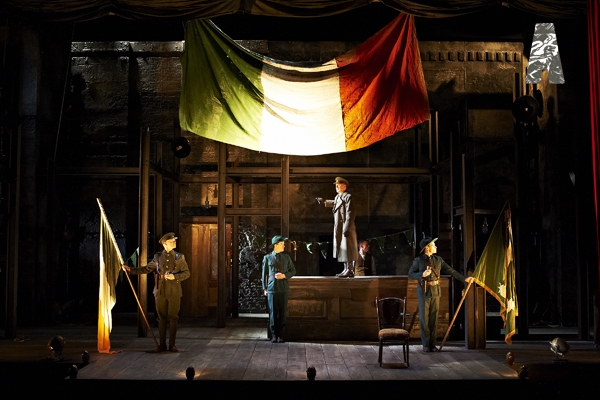
Wednesday 17 February, 5pm
Room 105, University of Westminster, 32-38 Wells Street, London W1T 3UW
‘Sean O’Casey and the Easter Rising’
Professor James Moran (Nottingham), with a response by Matthew Morrison
Spring 2016 marks the 100th anniversary of the Easter Rising in Dublin. The event will be commemorated at the National Theatre of Ireland with a production of Sean O’Casey play The Plough and the Stars and, from July, a separate production at the Royal National Theatre in London. What is the relationship of O’Casey’s play to the events of 1916? The talk explores how the insurrections was itself crafted by dramatists, with rebel leaders Thomas MacDonagh, Patrick Pearse and James Connolly all rehearsing aspects of the rising in the playhouse before they took on the British army in the streets of Dublin. It will show how O’Casey’s The Plough and the Stars subsequently sought to contradict the political and dramaturgical choices of those Easter rebels, but reveal that O’Casey’s writings also contain a number of endorsements of the insurgent point of view.
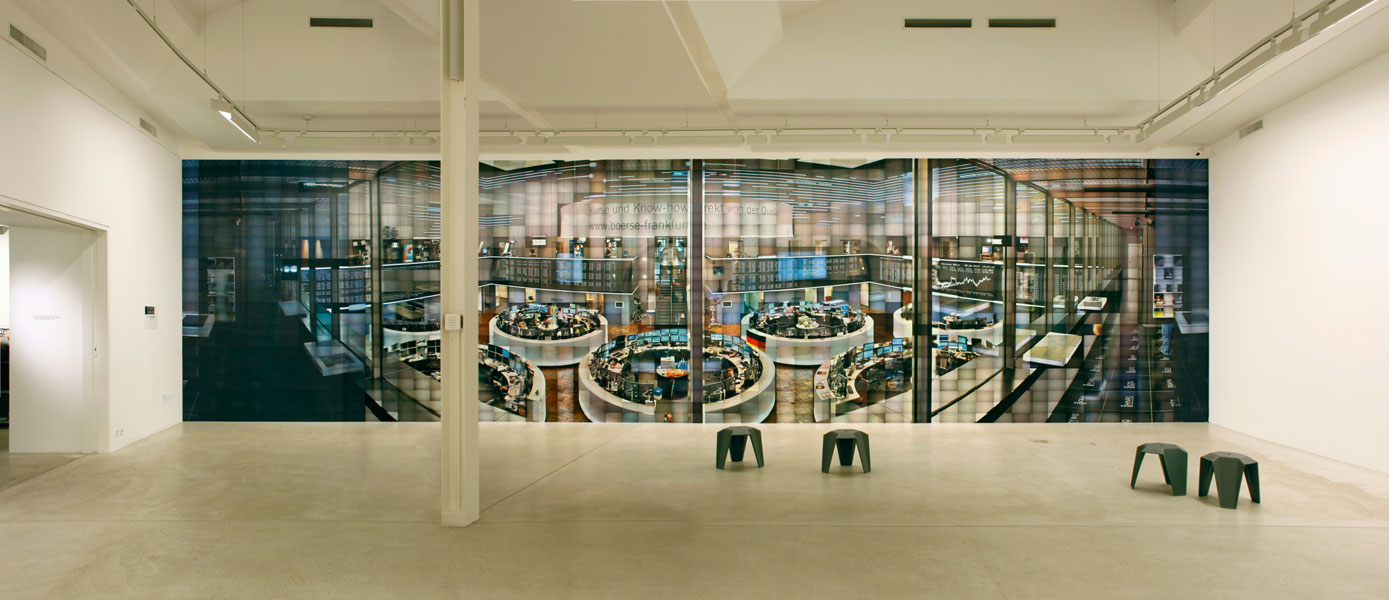
Friday 19th February 2016, 6.00 pm
Fyvie Hall, University of Westminster, 309 Regent Street, London W1T
“Exhibiting the Medium Formerly Known as Photography”
Duncan Forbes and Peter Cornwell
The last decade has witnessed dramatic changes in the exhibition of photography in response to the rise of so-called post-photography and the distributed or transitive nature of photographic media. The idea of photography as one medium is increasingly impossible to sustain, as images flood across different platforms, obliterating the distinction between still and moving media and offering new modes of reception and creative interaction. Nowadays the photograph is as much data as it is aesthetic or narrative, forging a paradigm of algorithmic vision. What does it mean for photography and its audiences when the traffic in photographs is transformed by global networks and the processing of big data?
Taking Fotomuseum Winterthur as a case study, this special lecture explores what these changes mean for curatorial practice and the institution of the photography museum.
Entry free of charge, please book here: http://www.eventbrite.com/e/exhibiting-the-medium-formerly-known-as-photography-tickets-21384410347 if you are not registered at the University of Westminster.
Duncan Forbes is Director and Curator of Fotomuseum Winterthur. He was previously Senior Curator of Photography at the National Galleries of Scotland. Recent collaborative curatorial and publishing projects include Provoke: Between Protest and Performance – Japanese Photography 1960-1975 (Steidl, 2016), Beastly/Tierisch (Spector Books, 2015), Manifeste! Eine andere Geschichte der Fotografie (Steidl, 2014) and Edith Tudor-Hart: In the Shadow of Tyranny (Hatje Cantz, 2013).
Peter Cornwell is Director of the Data Futures project in the Institute for Modern and Contemporary Culture at Westminster. He has previously been Director of European Research for Texas Instruments Inc., Professor of Public Art at Central Saint Martins and Director of the Institute of Visual Media, ZKM.
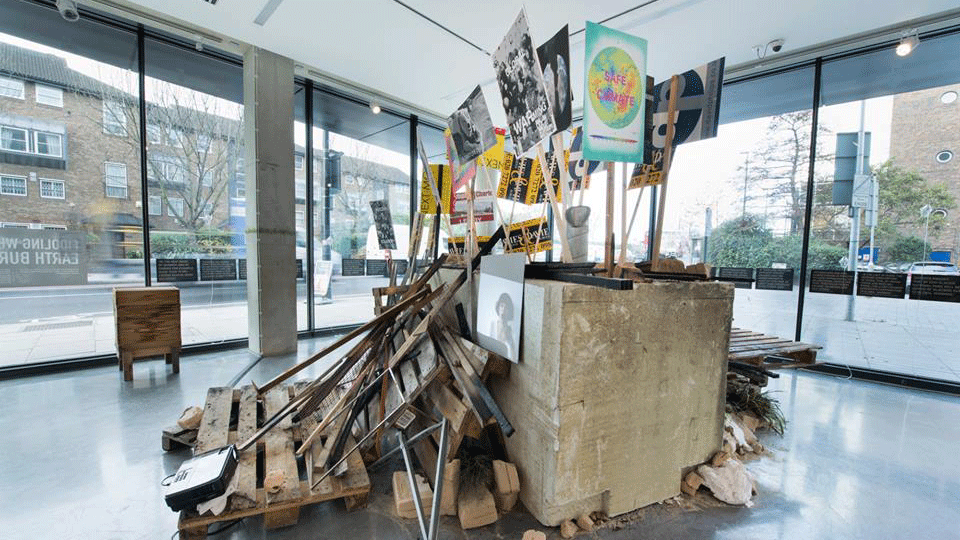
Tuesday 16th February 2016, 6.30-8.00 pm
Gorvy Lecture Theatre, Royal College of Art, 1 Hester Road, RCA Dyson Building, London SW11
RCA Visual Cultures Lecture Series 2015/16: Space, Data & Abstraction
The IMCC’s David Cunningham will be speaking alongside Adrian Lahoud, Dean of the School of Architecture, as part of the RCA’s current Visual Cultures Lecture Series, presenting recent research and discussing Space, Data & Abstraction. The conversation will be chaired by Jaspar Joseph-Lester, Research Tutor and Reader in Fine Art (Art, Urbanism and the Moving Image) at the RCA School of Fine Art.
Further details on the lecture series, which also includes contributions from Catherine David, Richard Sennett, Jonas Staal and Marina Warner, are available here.
The lecture is free and open to all – it will be live broadcast by this is tomorrow


The Institute for Modern and Contemporary Culture
University of Westminster Department of English, Linguistics and Cultural Studies
32-38 Wells Street, London W1T 3UW. United Kingdom.

